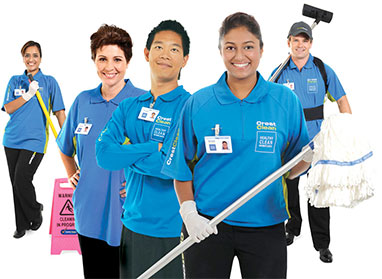FMs must invest in skills-based training to raise industry status and improve safety

Master Cleaners Training Institute CEO Adam Hodge.
As an employer in the commercial cleaning industry, if you make an investment in training you want it to produce confident, competent, safe and loyal employees who will make a positive contribution to your bottom line, helping you grow your business and your customer base.
For that to happen, the training has to be relevant to you, your business, your employees and, most importantly, your customers.
Many of the training programs available in New Zealand and accredited by the New Zealand Qualifications Authority (NZQA) fail in their relevancy due to the unnecessary and complicated amounts of paperwork.
Core skills carried out by cleaners are task-based so the training should be task-based as well. While some paperwork is necessary to check the trainee’s knowledge underpinning the skill, overall it should be kept to a minimum in basic core skills courses.
Master Cleaners Training Institute (MCTI) was started by CrestClean in 2013 with the founding principle that only through training would the standards and status of the commercial cleaning industry be raised in New Zealand.
The training would have to be relevant to a fast changing, dynamic and growing marketplace in an industry with a reputation for providing little or no recognised training, and with a very high employee turnover rate.
We believed that a task-based training program was the way forward and to implement this we undertook a partnership with the British Institute of Cleaning Science (BICSc) and introduced the BICSc Cleaning Professionals Skills Suite certificate training and assessment program.
Shortly after the introduction of the program, MCTI was contacted by Academy New Zealand and asked if we would be interested in providing training for some disadvantaged adults. Many of them had already worked in the commercial cleaning industry with various companies, some with more than 10 years of experience.
The comments received from the successful trainees when they were awarded their Cleaning Professional Skills Suite certificates indicated just how valuable and empowering the experience could be.
“This is the first real training I have received.”
“This is the first time I have ever received a certificate.”
“I have been cleaning for 11 years and this is the first time I have felt proud of my work.”
While very gratifying to hear, it was a reflection of the poor training, or lack of it, in our industry.
The task-based nature of our program was integral to the success of these trainees and would not have been possible under the NZQA National Certificate in Cleaning and Caretaking, due to the amount of paperwork inflicted upon the trainee and assessor.
We slam the door shut on competent and eager people when we confront them with literacy assessment documents, workbooks that are full of ‘tests’, and banks of questions.
According to the Ministry of Business, Innovation and Employment, there are 30,000 cleaners in New Zealand and at least 40 per cent are from non-English-speaking backgrounds. Is it any wonder that people who are, for the most part, not academically inclined and whose English skills are not geared toward completing paperwork, demonstrate trepidation at any mention of ‘training’ and either move on to another employer or leave the industry altogether?
Task-based training is even more essential today due to the imminent changes in Health and Safety legislation, including increased fines and penalties with the possibility of jail for managers and directors if an accident occurs and it can be proven that the employees had not received the proper health and safety training.
Fundamental changes have been made to the definition of the duty holder, moving to a more inclusive interpretation that allocates responsibilities to people best positioned to control risks to health and safety in the workplace.
Contracting managers are also responsible for ensuring that any company they engage for services have staff that are properly trained in all aspects of providing that service, including health and safety.
It is vital that employers and managers understand the risks and hazards associated with the tasks that their employees and contractors are asked to perform.
In 2014, MCTI was asked to provide a quote for a training course in cleaning public toilets from one of New Zealand’s largest local councils. During discussions on the type of training required, the subject of health and safety was raised, at which point the council manager stated, “We do not need you to provide that as our people already attend a safety training course.”
When asked if this course covered chemical competency or safe use, care and storage of equipment and materials, the reply was, “Eh, I suppose not.”
When the subject of colour coding for the prevention of cross contamination was raised the reply was, “Our people just use ‘rags’ so we do not have to bother about colour coding.”
We did not hear back from this council manager. I fear his attitude is all too prevalent.
By not recognising or understanding the risks and hazards involved in the tasks being carried out by his employees or his responsibility for providing the relevant health and safety training, not only is he endangering his employees, the industry and the public, if an accident were to occur this manager could find himself in court alongside the council facing serious charges under the new health and safety legislation.
The owners, directors and managers in our industry must show leadership and foresight by investing in the provision of quality, relevant, skills-based training. This training is not a cost, it’s an investment. Only by doing this will we raise the status and standards of our industry here in New Zealand and improve the safety and wellbeing of our personnel and the public.
